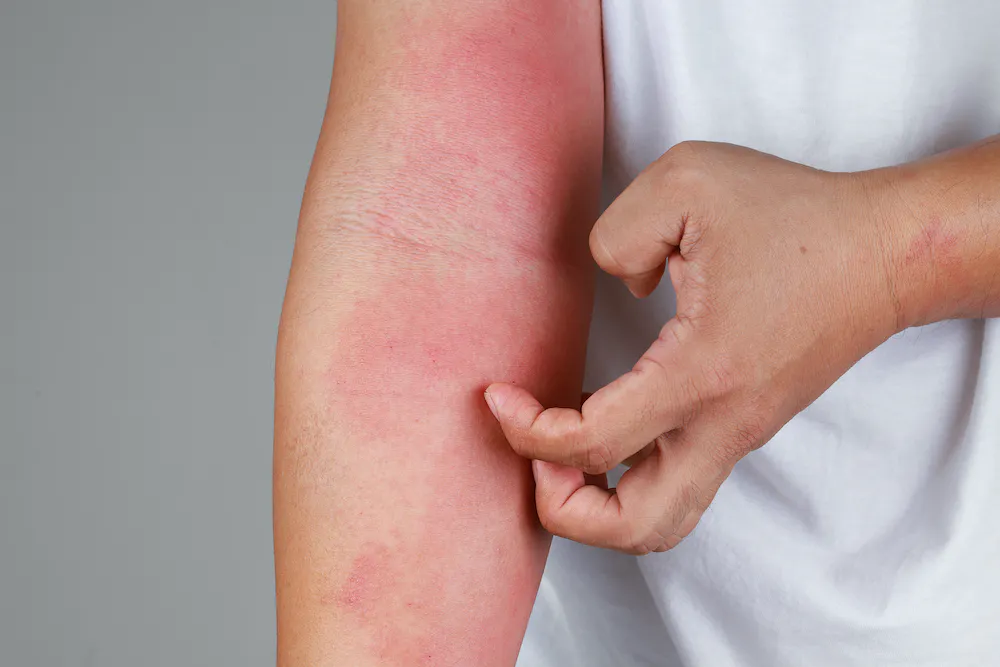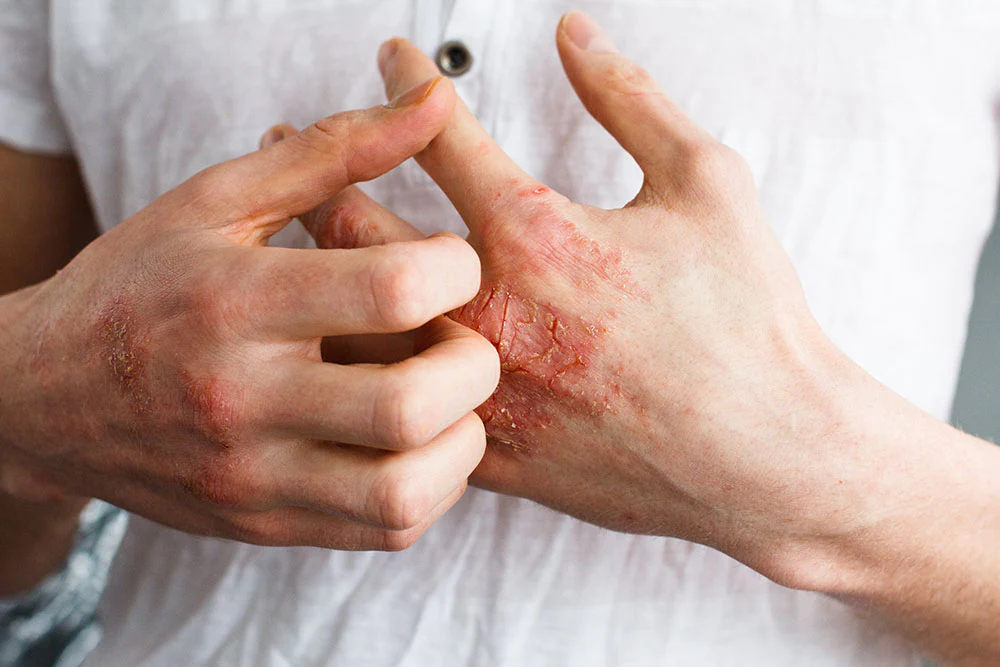Itchy skin, also known as pruritus, is a sensation that makes you want to scratch. It’s a common occurrence, and we’ve all experienced it at various points in our lives. But, could it be signaling something more serious than just a minor irritation? The answer is: yes, it could be. In this comprehensive guide, we will delve into this topic and shed light on why our skin itches and when it might be cause for concern.
The Common Causes of Itchy Skin
Typically, itchy skin is a symptom rather than a condition in itself. It could be due to numerous factors, from something as mundane as dry skin to something more serious, like an underlying health issue. Let’s examine the most common causes:
Dry Skin
When your skin is dry, it can often feel tight, rough, and itchy. The dryness could be due to environmental factors like low humidity, cold weather, or hot showers. A lack of hydration can leave your skin parched and begging for moisture, which often manifests as itchiness. Frequent application of moisturizers can help combat this issue.
Allergic Reactions
Allergic reactions can also trigger itchy skin. This reaction could be to a wide variety of substances, including food, medications, insect stings, pollen, pet dander, or certain materials like latex. The body reacts to these allergens by releasing histamines, chemicals that cause itching and redness.
Insect Bites
Insect bites or stings can cause localized areas of itching. The culprits could be mosquitoes, bed bugs, ticks, or fleas. The itching usually subsides after a few days, but in some cases, it could lead to a more serious allergic reaction.

When Itchy Skin Could Be a Sign of Something Serious
While the above causes are relatively benign, there are instances where itchy skin may indicate an underlying serious condition. Let’s take a look:
Eczema and Psoriasis
Eczema and psoriasis are two chronic skin disorders that often cause intense itching. These conditions can affect one’s quality of life due to the constant discomfort and appearance of the skin. The itch-scratch cycle can also lead to skin damage, infections, and sleep disturbances.
Liver Disease
Itching could be a sign of liver disease. When the liver fails to effectively remove toxins from the blood, these toxins accumulate and can cause the skin to itch. Other symptoms of liver disease can include jaundice, fatigue, and unexplained weight loss.
Kidney Disease
Chronic kidney disease can also manifest as itching. Similar to liver disease, the kidneys’ inability to effectively filter waste from the blood can lead to toxin build-up, resulting in itching and other symptoms like nausea, fatigue, and frequent urination.
Thyroid Problems
Itchy skin can also be a symptom of thyroid problems. An overactive thyroid, or hyperthyroidism, can cause symptoms including itchy skin, rapid heart rate, weight loss, and increased perspiration.
Cancers
In rare cases, persistent itching could be a symptom of certain cancers, such as lymphoma or leukemia. In these instances, the itching is usually accompanied by other symptoms like unexplained weight loss, fatigue, or swollen lymph nodes.

Diagnosis of Serious Conditions Related to Itchy Skin
If you’re experiencing persistent, unexplained itching, it’s essential to consult a healthcare professional. They can help determine the underlying cause through various diagnostic methods:
Physical Examination
A physical examination is often the first step in diagnosing the cause of itchy skin. The healthcare provider will look for signs of inflammation, rashes, or other abnormalities on the skin’s surface.
Blood Tests
Blood tests can help identify signs of underlying health conditions that could be causing your itching. They can detect abnormal liver or kidney function, allergic reactions, and other conditions.
Imaging Tests
For further investigation, imaging tests like ultrasound, CT scans, or MRI may be needed. These tests can help visualize internal structures and identify abnormalities that could be linked to the itching.
Treatment Options for Serious Itchy Skin Conditions
The treatment for itchy skin depends largely on the underlying cause:
Medication
For more serious causes of itchy skin, various medications may be recommended by your healthcare provider. These could include antihistamines for allergies, corticosteroids for inflammation, or specific treatments for conditions like eczema, psoriasis, or thyroid disorders.
Lifestyle Changes
In many cases, simple lifestyle changes can significantly alleviate itchy skin. This might involve using hypoallergenic skincare products, staying well-hydrated, and avoiding known triggers for skin irritation, such as certain fabrics or food.
Conclusion
While most instances of itchy skin are harmless and easily treatable, persistent itchiness could be a sign of something more serious. If your itching persists, don’t ignore it. Seek medical advice to ensure you’re not dealing with a significant underlying health issue.
FAQs
1. Can stress cause itchy skin?
Yes, stress can induce a variety of physical symptoms, including itchy skin. The body’s stress response can lead to inflammation and other skin changes that result in itching.
2. Is itchy skin a sign of diabetes?
Yes, diabetes can lead to dry, itchy skin. High blood sugar levels can cause dehydration, leading to dryness and itchiness.
3. Can itchy skin be a symptom of COVID-19?
While it’s not a common symptom, some people with COVID-19 have reported experiencing itchy skin.
4. What foods can cause itchy skin?
Certain foods can trigger allergic reactions that cause itchy skin. Common culprits include shellfish, peanuts, eggs, and dairy products.
5. How can I soothe my itchy skin?
Over-the-counter creams and lotions, cool baths, and wet compresses can help soothe itchy skin. If these remedies don’t help, consult a healthcare provider.
